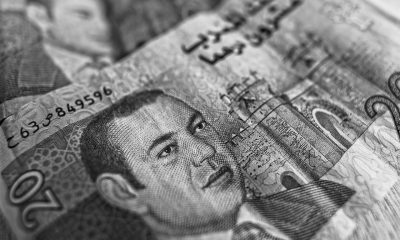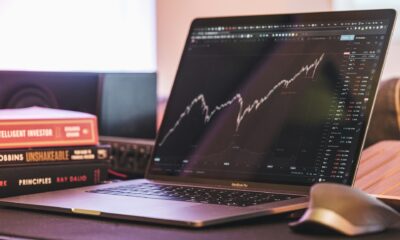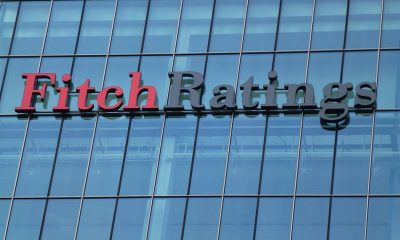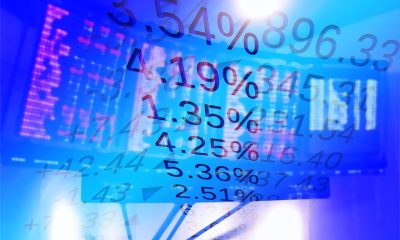Africa
Strong Profitability for Moroccan Banks Through 2026, Boosted by Credit Growth, Says Fitch
Fitch Ratings expects Moroccan banks to sustain high profitability through 2025-2026, driven by credit growth of 6-7% fuelled by infrastructure and industrial projects. Challenges include rising bad debts, now 8.6% of loans. GDP growth of 3.8% and structural reforms may enhance credit. A 20% bad debt reduction could boost bank capitalization significantly.

Sectoral loan growth averaged 4.5% over the period 2019-2024 and 5% in 2024 and 2025. According to Fitch Ratings, it is expected to reach 6% in 2025. This forecast exceeds, according to the financial rating agency, the median for the Middle East and North Africa region. It should be noted that the seven largest Moroccan banks recorded an increase in their aggregate net income of 19% over one year.
Moroccan banks are expected to maintain their high profitability in 2025 and 2026. This is what the American rating agency Fitch Ratings says. In a report dedicated to the national banking system, it assures that the growth of sectoral loans was 4.5% on average over the period 2019-2024 and 5% over the period 2024-2025. It predicts that it will reach 6% in 2025. The growth anticipated by the agency is supported by a favorable economic environment and stimulated by major infrastructure and industrial projects.
However, this forecast remains confronted with the issue of bad debts which continue their upward trend. Their volume has more than doubled over the last decade. It thus reached 98 billion dirhams at the end of September 2024, or 8.6% of the sector’s credits and approximately 7% of GDP.
On the macroeconomic front, the agency is counting on GDP growth of 3.8% over the period 2025-2026. These forecasts are close to those of the HCP (see also pages 8 and 9). Structural reforms could also be positive for bank credit, in particular the creation of a secondary market for non-performing loans, which should be adopted by Parliament this year.
This forecast exceeds, according to Fitch, the median for the Middle East and North Africa region. It should be noted that the seven largest Moroccan banks recorded, in the third quarter of 2024, an increase in their aggregate net income of 19% over one year. This trend is expected to continue, driven by an increase in business volumes and a decrease in provisions for doubtful debts.
Moroccan Banks: $100 MM for Infrastructure and Industrial Projects
By some estimates, major infrastructure and industrial projects could require more than $100 billion ($100 billion) of financing over the 2025-2030 period. Fitch believes that these projects, which are projected to cost $34 billion in 2025 alone, will drive demand for credit, particularly for investment loans, whose outstanding amount increased by 14% in the first ten months of 2024, which will increase Moroccan banks profitability.
This will support credit growth, which is expected to average 6-7% per year over the next few years. Operating conditions in Morocco are more favorable than in most African countries. This is reflected in Fitch’s BB rating for the operating environment of domestically focused banks. This is the second highest score in terms of operating environment among African banking sectors.
However, structural constraints limit the potential for an increase in this score, notably the low GDP/capita in Morocco ($4,021 in 2024), the strong dependence on agriculture (12% of GDP and 30% of employment), and the high unemployment rate (13%).
Benefits of a 20% reduction in bad debts
Furthermore, non-agricultural sectors, such as tourism and construction, should compensate for these weaknesses in 2025 and 2026, notably thanks to the organization of major sporting events.
Fitch estimates that a 20% reduction in bad loans held by the six largest Moroccan banks could improve their Common Equity Tier 1 (CET1) ratio by an average of 185 points, with improvements ranging from 120 points to 320 points. An improvement that banks could use to finance their growth.
The rating agency also points out that capitalization remains a negative factor. Upward revisions of capital scores are expected with the reduction in the weight of bank defaults.
__
(Featured image by Idriss Meliani via Unsplash)
DISCLAIMER: This article was written by a third party contributor and does not reflect the opinion of Born2Invest, its management, staff or its associates. Please review our disclaimer for more information.
This article may include forward-looking statements. These forward-looking statements generally are identified by the words “believe,” “project,” “estimate,” “become,” “plan,” “will,” and similar expressions. These forward-looking statements involve known and unknown risks as well as uncertainties, including those discussed in the following cautionary statements and elsewhere in this article and on this site. Although the Company may believe that its expectations are based on reasonable assumptions, the actual results that the Company may achieve may differ materially from any forward-looking statements, which reflect the opinions of the management of the Company only as of the date hereof. Additionally, please make sure to read these important disclosures.
First published in LES ECO.ma. A third-party contributor translated and adapted the article from the original. In case of discrepancy, the original will prevail.
Although we made reasonable efforts to provide accurate translations, some parts may be incorrect. Born2Invest assumes no responsibility for errors, omissions or ambiguities in the translations provided on this website. Any person or entity relying on translated content does so at their own risk. Born2Invest is not responsible for losses caused by such reliance on the accuracy or reliability of translated information. If you wish to report an error or inaccuracy in the translation, we encourage you to contact us

-

 Biotech2 weeks ago
Biotech2 weeks agoWhy Bioceres Shares Slide Into Penny Stock Territory
-

 Crowdfunding6 hours ago
Crowdfunding6 hours agoReal Estate Crowdfunding in Mexico: High Returns, Heavy Regulation, and Tax Inequality
-

 Africa1 week ago
Africa1 week agoAgadir Allocates Budget Surplus to Urban Development and Municipal Projects
-

 Cannabis2 weeks ago
Cannabis2 weeks agoKONOPEX Expo 2026: Celebrating Europe’s New Era of Legal Cannabis






















